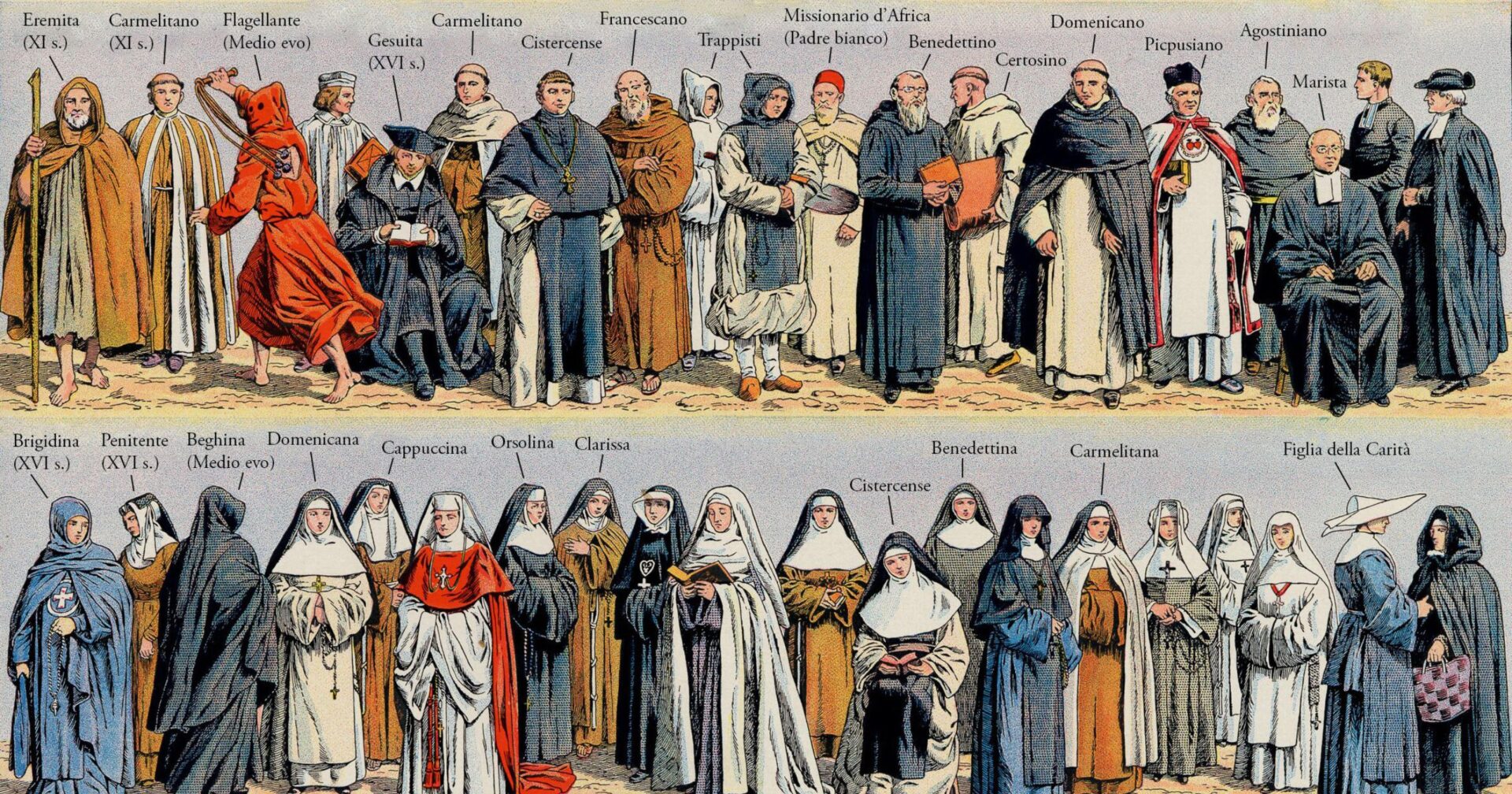In Western Europe from the 13th to 16th centuries, there was a group of Catholic lay religious orders known as the Beguines and the Beghards.
These members lived in semi-monastic communities, but unlike traditional religious orders, they did not take formal vows. They promised to live as celibates but were free to leave at any time. These orders were part of a larger spiritual revival movement that emphasized the imitation of Jesus’ life through poverty, care for the poor and sick, and religious devotion.
Despite its popularity, the origin of the name “Beguine” remains uncertain to this day. It may have even been a pejorative term. Nevertheless, these women attracted attention for their commitment to prayer, sacraments, and charitable service to the poor. They lived in towns and inspired local clergy, who sought to promote them as saints after their death.
The Beguines were not nuns, but they led a life of contemplative prayer and active service. They took personal vows of chastity but were never officially recognized as a religious order by the papacy.
They were free to abandon their religious life at any time and were often criticized for their ambiguous legal and social status. On one hand, they were accused of being hypocritical, while on the other hand, they were admired for their devotion to God, voluntarily pursuing a religious life without vows or walls. Religious authorities often viewed the Beguines with suspicion due to perceived heretical tendencies.
Several synods, including those of Fritzlar in 1259, Mainz in 1261, and Eichstätt in 1282, sought to impose disciplinary measures on the group. However, the Synod of Béziers declared in 1299 that the Beguines were not officially approved. Despite this, the Council of Vienne condemned the group in 1312. However, Pope John XXII partially reversed this sentence in 1321, allowing the Beguines to resume their way of life after undergoing reforms.
The Beghards faced even greater opposition. During the 14th century, the Holy See, bishops (especially in Germany), and the Inquisition repeatedly condemned them. Despite this, the Catholic Encyclopedia acknowledges that there were also men of faith and piety among the Beghards. In their defense, Popes Gregory XI and Boniface IX issued Bulls to the bishops of Germany and the Netherlands, respectively.
Despite the uncertainty surrounding their origins, it is no doubt the Beguines and Beghards inspired considerable admiration and controversy for their commitment to their faith!















Google paying a splendid earnings from domestic 6,850 USD a week, this is awesome a 12 months beyond I was laid-off in a totally horrible financial system. “w many thank you google every day for oc-85 blessing the ones guidelines and presently it’s miles my responsibility to pay and percentage it with all and Sunday.
.
.
Proper right here I started————————>>> WORK AT HOME